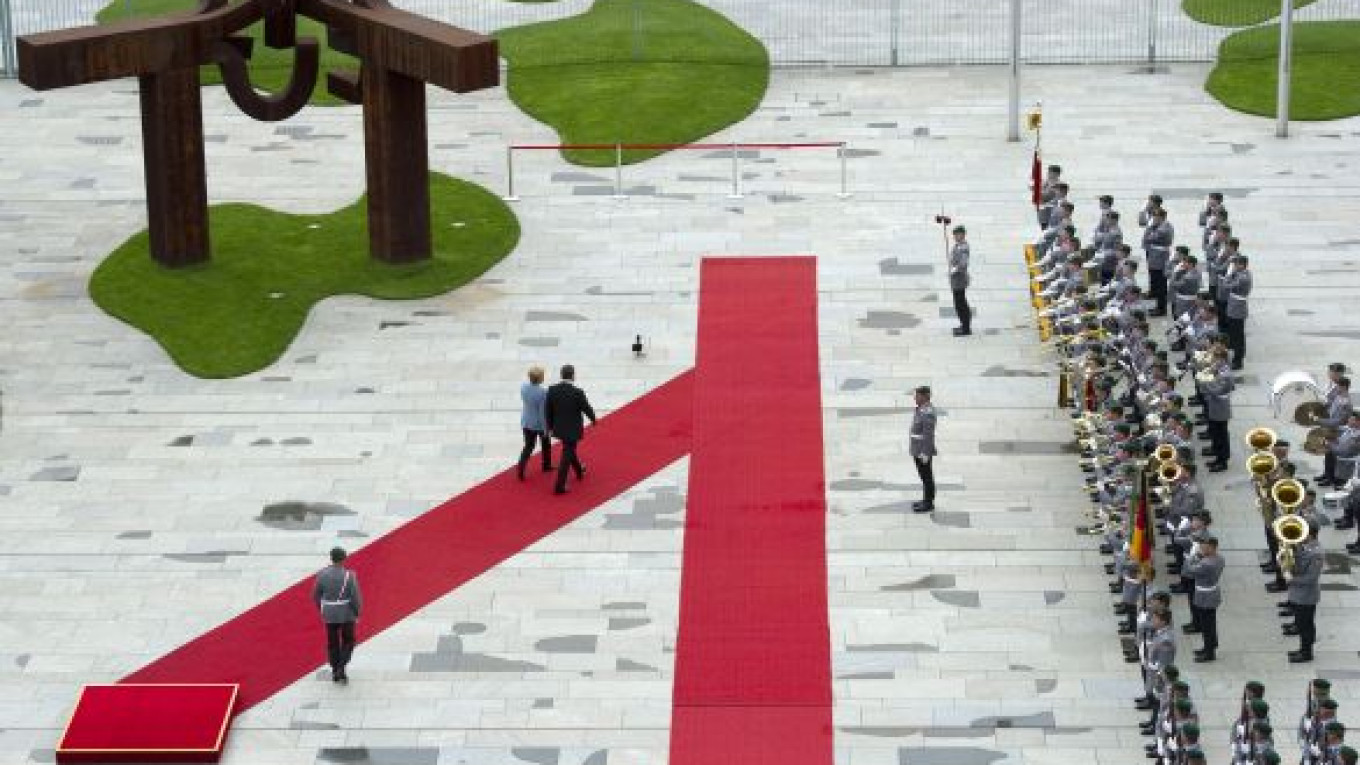BERLIN — Germany's chancellor urged Ukraine's president on Monday to strengthen media freedoms in his country, while stressing the potential for further cooperation between the two nations on energy issues.
Germany sees unanswered questions regarding some democratic processes in Ukraine, "in particular in the area of press freedom and the freedom of expression," Chancellor Angela Merkel told visiting President Viktor Yanukovych.
Merkel said both sides agreed to openly and frankly discuss those issues in the future, if critical questions arise.
International rights groups have expressed concern about a deterioration of media freedom in Ukraine since the Moscow-friendly Yanukovych was elected to office in February.
Global media rights watchdog Reporters Without Borders said in July that there were alarming signs on censorship, political pressure and physical attacks against reporters.
Yanukovych did not address the issue but said it is in his greatest interest that the process of democratization in Ukraine successfully continues.
In other comments, Merkel said Germany wanted to actively participate in the forthcoming restructuring of the Ukrainian gas transportation system.
"We agreed that we want to cooperate here in a very concrete manner," Merkel said.
Ukraine is the main transit hub for deliveries of Russian natural gas to Germany. Spats between Russia and Ukraine over transit fees have in the past led to disruptions of crucial deliveries to Germany and Western Europe.
Yanukovych said it was in Germany's and Europe's interest to participate in the restructuring of the gas transport system since it would give the countries control over its use in the future, boosting their energy security.
"It's about finding solutions that exclude instability for the future regarding the gas deliveries to Europe," Yanukovych said through a translator, welcoming Germany's participation.
The president praised the talks in Berlin as a new start to a strengthened cooperation with Germany, which he called "a strategic partner within the European Union."
Yanukovych said negotiations about visa-free travel for Ukrainians into the EU are on a good track, predicting a solution "in the foreseeable future."
A Message from The Moscow Times:
Dear readers,
We are facing unprecedented challenges. Russia's Prosecutor General's Office has designated The Moscow Times as an "undesirable" organization, criminalizing our work and putting our staff at risk of prosecution. This follows our earlier unjust labeling as a "foreign agent."
These actions are direct attempts to silence independent journalism in Russia. The authorities claim our work "discredits the decisions of the Russian leadership." We see things differently: we strive to provide accurate, unbiased reporting on Russia.
We, the journalists of The Moscow Times, refuse to be silenced. But to continue our work, we need your help.
Your support, no matter how small, makes a world of difference. If you can, please support us monthly starting from just $2. It's quick to set up, and every contribution makes a significant impact.
By supporting The Moscow Times, you're defending open, independent journalism in the face of repression. Thank you for standing with us.
Remind me later.


